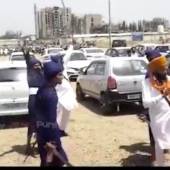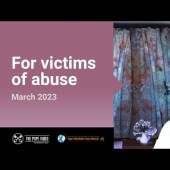Human rights activists condemn Dalit Christian boy's death in Gaya
Human rights activists have condemned the death of a Dalit Christian boy in Gaya, Bihar state of north India.
"The gruesome murder in Gaya, the region celebrated for Lord Buddha's attaining Enlightenment, today reflects the brutal reality of targeted hate against Christians and Muslims, together with impunity and callousness of the police and criminal justice system," said John Dayal, activist and former president of the All India Catholic Union.
Nitish Kumar, a 14-old Dalit Christian, who had faced an acid attack, died at a Patna hospital on September 26.
On August 11, three unidentified men on a motorbike threw the liquid on Nitish as he returned home from his early morning routine of purchasing fresh vegetables. This took place near Kamta Nagar village in Gaya district, about 750 meters from his house.
Family sources say the attackers belonged to saffron-clad bullies and local people.
"I am angry but not surprised that the police are yet to begin the process of registering a formal case and trying to trace the killers, and that both they and the local media were keen to dismiss the crime saying the victim was a Hindu," said Dayal, a writer and senior journalist.
If the boy had not been buried in Christian rites, it would have been forgotten entirely.
The bereaved family remains terrified, reflecting the plight of Dalits and minorities who face targeted hate speech every day of their life and occasionally murderous violence, he added.
Though the incident occurred more in August, except for some disturbing photographs being shared in some social media groups, and a couple of reports on some foreign websites, there has been a deafening media silence. The local press did not cover the crime, apart from a few online outlets and a national daily.
Meanwhile, Father Devasagayaraj M Zackarias, the former national secretary of the office for scheduled castes/backward classes of the Catholic Bishops' Conference of India, also expressed his concern over the incident.
"Religious persecution in India continues to be on the rise and the situation is threatening," he said.
The right-wing religious people take the law into their hands because of the Hindu national Bharatiya Janata Party in power at the federal level. The freedom of religion guaranteed in the Constitution remains in the paper and the officials pay dead hears to the cry of the religious minorities, said Zackarias, a Dalit human rights activist.
"The merciless act of throwing acid on a minor Dalit Christian is to be strongly condemned by all the political parties and civil societies," he said.
Justice must be rendered to the bereaved family and the governments should ensure that such incidents do not occur in the future, Zackarias added.
The suffering and tragic death of Nitish is uncalled for.
When this reporter of Radio Veritas Asia and others visited a private hospital and spoke with the boy, Nitish initially thought they (perpetrators) had mischievously thrown water on him.
"But soon my skin began to burn," Nitish told Radio Veritas Asia, "The burning sensation increased with every passing second. I dropped the basket and ran towards my house screaming and howling in panic."
Nitish, a victim of a cowardly and heinous act by 'powerful' goons who have no fear of the law, did not deserve the plight and the death later.
According to the narration of Nitish, the motorbike did not stop, and in his pain, he had no way of trying to see its license plate, "I do not know who they were," he said.
The acid burned 55 percent of his body, with 15 percent severe burns while, his face was untouched, said Sushma Sharma, a hospital volunteer who treated Nitish.
Abhinash Lal from Anishabad in Patna said the fire burned him in the back from neck to knees and in front, from his lower chest, stomach and groin down to his knees, along with the back of both hands.
Nitish's mother and two brothers cared for him 24 hours a day in the hospital. His father pulls a 'thela' or a cycle cart, trying to somehow earn something for the family's financial needs.
The family, who are not well off, were helped by their community members but were able to get Nitish to the hospital in Patna, 90 kilometers from their home, four days after the attack.
"Earlier, he was critical," said Dr. K.N. Tiwari of the burn unit of Appolo Burn Hospital in Patna, Bihar state. "His survival chances were low."
When Nitish was brought to the hospital, Dr. Tiwari had wondered aloud how he was still alive given the extent of his burns.
Dr. Tiwari said Nitish's wounds were not going to heal on their own.
"There was only one treatment for his condition, and that is skin grafting, but there was not enough skin left on his body to be used except for a socks-length portion on one of his feet and some portion of his chest,"
The little amount of skin left cannot cover the entire area of his body that is burnt.
Nitish's low hemoglobin levels made skin grafts too risky, he said. Nitish lost much blood with the changing of his dressing every other day, a nurse said.
Sanjeet, a grade nine student and younger than his brother, said that Nitish received a blood transfusion nearly every three days.
The tension was how to do surgery and gather skin for the graft since so little was left in the body.
While the motivation for the attack is yet to be known, the Christian community suspects that it is the work of anti-Christian activists in the village.
Nitish and his four brothers, two sisters, mother, and father identified as Hindus until two years ago, said Sanjeet. It was after they began identifying as Christians that they were first questioned and then harassed.
"A month before the attack, some extremists spread the word in the village that they would expel all the people who follow the Christian faith from the village," Sanjeet said. "We also heard about it, but it did not deter us from our faith. And suddenly, this attack took place."
He said that many in their church group have faced hostilities from anti-Christian hardliners who boast of political backing and influence.
In December last year, some anti-Christian extremists blocked the routes of Christians going to Sunday services in Kurwa and questioned them, he said.
"They would question everybody as to why do they go for prayer," Sanjeet said. "They used to ask us if we had been given money or another allurement to attend the meetings, or were we forced to do so. So, all of us clarified that nobody asked us to come to church. We all go to church of our own will."
The Kumar family, though poor, probably became targets as they openly identified as Christians, holding prayers each evening in their home with about 20 others; the brothers Sanjeet and Nitish also went to other places to lead worship services.
"We know that those who belong to Christ have to face persecution and have to take the narrow road to enter into God's kingdom," he said.
Though the family was reluctant to go to the police station, it is learned that a case has been registered under sections 322, 325 and 326 of the Indian Penal Code.
A visitor to the hospital said, "Despite such a big incident, his family members are still living in a scare, a member burned by acid liquid, but they have nothing to say about it.
The family opted not to report the attack to the police. This proves that even today in Bihar, when people talk of 'su-shashan' (good governance), some people are forced to live under oppression by powerful anti-social elements.
-Frank Krishner, RVA News
Radio Veritas Asia (RVA), a media platform of the Catholic Church, aims to share Christ. RVA started in 1969 as a continental Catholic radio station to serve Asian countries in their respective local language, thus earning the tag “the Voice of Asian Christianity.” Responding to the emerging context, RVA embraced media platforms to connect with the global Asian audience via its 21 language websites and various social media platforms.














